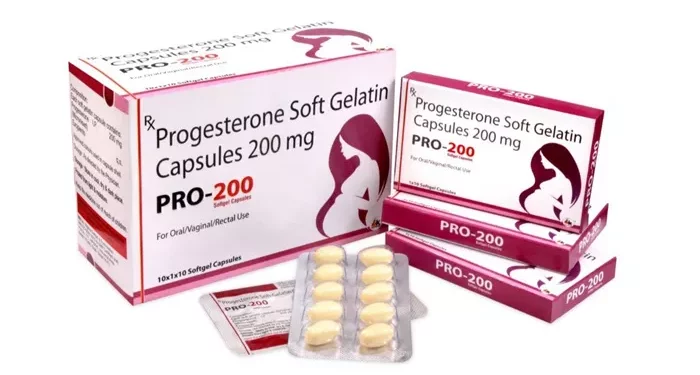In the realm of fertility enhancement, over-the-counter (OTC) fertility pills have garnered attention as potential aids for couples striving to conceive. These supplements, readily available without a prescription, encompass a variety of vitamins, minerals, herbs, and antioxidants. While their popularity grows, navigating the landscape of OTC fertility pills requires a discerning approach. This article aims to provide a thorough exploration of these supplements, discussing their effectiveness, safety considerations, and the broader context of fertility health.
What Are Over-the-Counter Fertility Pills?
Over-the-counter fertility pills are non-prescription supplements designed to support reproductive health and increase the chances of conception. They are typically categorized into vitamins, minerals, herbal extracts, amino acids, and antioxidants. These supplements are widely available in pharmacies, health food stores, and online platforms, often marketed as natural alternatives to traditional fertility treatments.
Types of Over-the-Counter Fertility Pills
Vitamins and Minerals: Essential nutrients like folic acid (vitamin B9), which plays a critical role in fetal development and reducing the risk of neural tube defects, are commonly included in fertility supplements. Other key vitamins include vitamin C, vitamin E, and vitamin D, each contributing to reproductive health in various ways.
Herbal Supplements: Natural extracts such as chasteberry (Vitex agnus-castus), black cohosh, and evening primrose oil are frequently used in OTC fertility pills. These herbs are believed to regulate menstrual cycles, balance hormones, and support overall reproductive function.
Amino Acids and Antioxidants: Compounds like L-arginine, N-acetyl cysteine (NAC), and Coenzyme Q10 (CoQ10) are known for their antioxidant properties, which may protect eggs and sperm from oxidative stress and improve overall fertility health.
Effectiveness of Over-the-Counter Fertility Pills
The effectiveness of OTC fertility pills varies widely and is often debated due to the lack of robust clinical trials and regulatory oversight compared to prescription medications. While some supplements show promise in small-scale studies and anecdotal reports, conclusive evidence supporting their efficacy in improving fertility outcomes remains limited.
Safety Considerations
Safety is a paramount concern when considering any supplement regimen, especially for fertility. Although OTC fertility pills are generally regarded as safe when used as directed, potential risks and considerations include:
Quality Control: Variability in manufacturing standards and ingredient purity among different brands.
Interaction with Medications: Potential interactions with prescription medications or pre-existing health conditions.
Side Effects: Possible adverse effects such as gastrointestinal upset, allergic reactions, or hormonal imbalances.
Regulatory Oversight: Limited regulation compared to prescription medications, leading to variability in product quality and efficacy.
Choosing the Right Over-the-Counter Fertility Pills
Selecting the most suitable OTC fertility pills requires careful consideration and informed decision-making. Here are key factors to keep in mind:
Consultation with Healthcare Provider: Before starting any new supplement regimen, consult with a healthcare provider or fertility specialist. They can provide personalized guidance based on your medical history, current medications, and specific fertility concerns.
Ingredients and Formulation: Opt for supplements from reputable brands that adhere to good manufacturing practices (GMP) and have undergone third-party testing for purity and potency.
Evidence of Efficacy: Look for supplements backed by scientific research or clinical studies demonstrating their effectiveness in improving fertility outcomes.
Dosage and Timing: Follow recommended dosage instructions provided by the manufacturer or healthcare provider. Consistency in taking the supplement at the right time in your menstrual cycle, if applicable, is crucial for potential benefits.
Holistic Approach to Fertility Health
While OTC fertility pills can be part of a holistic approach to enhancing fertility, they should complement rather than substitute for other essential aspects of reproductive health. Consider the following holistic practices:
Nutrition: A balanced diet rich in fruits, vegetables, lean proteins, and whole grains supports overall health and fertility.
Exercise: Regular physical activity helps maintain a healthy weight and promotes hormonal balance, potentially enhancing fertility.
Stress Management: Chronic stress can impact fertility hormones. Practices such as yoga, meditation, and relaxation techniques can be beneficial.
Avoiding Harmful Substances: Limit alcohol intake, quit smoking, and avoid illicit drugs to optimize fertility health.
Conclusion
Over-the-counter fertility pills offer a potential pathway for individuals and couples seeking to enhance their fertility and increase their chances of conception. While these supplements may provide supportive benefits, their efficacy and safety should be approached with caution and informed by individual health considerations. Consulting with a healthcare provider is crucial to ensure that OTC fertility pills are a suitable option based on your unique medical history and fertility goals. By integrating supplements into a holistic approach that includes nutrition, lifestyle modifications, and professional medical guidance, individuals can empower themselves in their fertility journey.
FAQs:
Which pills can I take to get pregnant fast?
There is no magic pill that guarantees fast pregnancy, as fertility can be influenced by various factors. However, some supplements that may support fertility and reproductive health include folic acid, Coenzyme Q10 (CoQ10), and omega-3 fatty acids.
What is the best fertility drug to get pregnant over the counter?
Clomiphene citrate (Clomid) is a commonly prescribed fertility drug that is available over the counter in some countries. It is used to induce ovulation in women who have irregular menstrual cycles or ovulation issues.
What is the best fertility supplement to get pregnant?
The effectiveness of fertility supplements can vary, and what works best can depend on individual health factors. Some popular fertility supplements include prenatal vitamins (containing folic acid and other key nutrients), Coenzyme Q10 (CoQ10), and Vitex (chasteberry), which may help regulate hormones.
Which tablet is best for conceiving baby?
There isn’t a single tablet that guarantees conception, but prenatal vitamins are generally recommended for women trying to conceive. These typically contain folic acid, iron, calcium, and other vitamins and minerals important for reproductive health.
Which vitamin is good to get pregnant fast?
Folic acid (vitamin B9) is crucial for early pregnancy as it helps prevent neural tube defects in the developing fetus. Taking folic acid before conception and during early pregnancy is recommended to support healthy fetal development.
What can I take if I want to get pregnant?
If you’re trying to conceive, consider taking prenatal vitamins that contain folic acid and other essential nutrients. Additionally, supplements like Coenzyme Q10 (CoQ10) and omega-3 fatty acids may support fertility by improving egg quality and reproductive health.
It’s important to note that while supplements can be supportive, they should complement a healthy lifestyle that includes regular exercise, a balanced diet, managing stress levels, and avoiding substances like tobacco and excessive alcohol. Consulting with a healthcare provider before starting any new supplement regimen is crucial, especially if you have underlying health conditions or are taking medications. They can provide personalized advice based on your individual health and fertility needs.
Related Links:
What Are the Best Pills to Get Pregnant



























